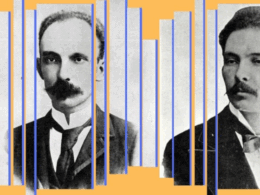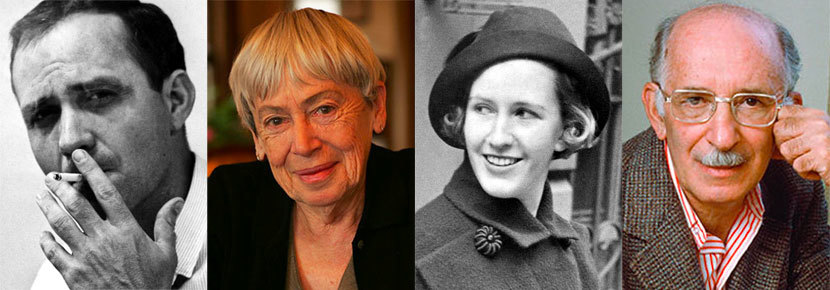
Even as we continue to mark our fortieth anniversary in 2022, we are excited to look ahead to our new releases in the first half of 2023, including: capstone volumes in the editions of two postwar masters of American fiction; the collected poetry of a science fiction legend; the ultimate one-volume edition of one of the most acclaimed comic writers of the last half century; and two paperback reissues celebrating a midcentury writer whose time has come again.
Browse the list immediately below for information about contents and publication dates; scroll further down the page for a more detailed description of each new release.
LIBRARY OF AMERICA SERIES
John Updike
Novels 1996–2000
In the Beauty of the Lilies • Gertrude and Claudius • Rabbit Remembered
Christopher Carduff, editor
Library of America #365 / ISBN 978-1-59853-744-4
March 2023
Bernard Malamud
Novels and Stories of the 1970s & 80s
The Tenants • Dubin’s Lives • God’s Grace • Stories & Memoirs
Philip Davis, editor
Library of America #367 / ISBN 978-1-59853-745-1
March 2023
Ursula K. Le Guin
Collected Poems
Harold Bloom, editor
Library of America #368 / ISBN 978-1-59853-736-9
April 2023
Charles Portis
Collected Works
Jay Jennings, editor
Library of America #369 / ISBN 978-1-59853-746-8
May 2023
PAPERBACKS
Nancy Hale
Where the Light Falls: Selected Stories
Edited with an introduction by Lauren Groff
ISBN 978-1-59853-748-2
The Prodigal Women: A Novel
Introduction by Kate Bolick
ISBN 978-1-59853-749-9
May 2023
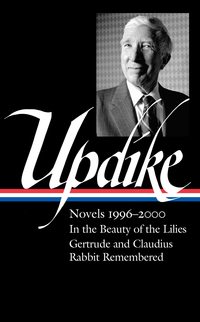
Library of America’s five-volume edition of John Updike’s novels concludes with the master stylist and social observer’s most ambitious late works. In the Beauty of the Lilies (1996) opens in 1910, when Clarence Wilmot, a Presbyterian minister in Paterson, New Jersey, experiences a devastating loss of faith. This moment of crisis sets in motion an eighty-year, multigenerational saga whose subject is nothing less than the American Century and modernity itself. In Gertrude and Claudius (2000), Updike boldly imagines the long backstory to the most famous play in the English language, prompting readers to revisit and perhaps revise their judgments about Hamlet’s notorious uncle and mother. Drawing on the twelfth- and fifteenth-century sources for Hamlet, but also inventing a new history for Claudius in his far-flung travels across medieval Europe, Updike creates a vivid and surprising origin story for the fabled rottenness in Shakespeare’s Denmark. The novella Rabbit Remembered (2000) is a poignant final curtain call for one of the greatest characters in twentieth-century American literature. Once again the setting is Brewer, Pennsylvania, but now Harry Angstrom’s family are figuring out their lives in his absence. Harry’s ghost is insistently present, and the stories shared by his children suggest that the reckoning with those closest to us, for better and for worse, never really ends. An appendix to the volume contains six pieces by Updike with his remarks on the novels collected here.
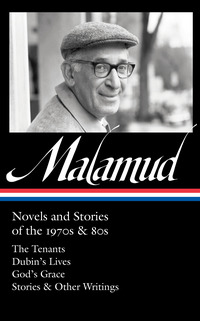
Bernard Malamud wrote timebound and timeless novels and stories that combine fantasy and realism, tragedy and comedy, in an idiom uniquely his own. Library of America’s third and final Malamud volume brings together three novels and thirteen stories of the 1970s and ’80s that reaffirm his place in the American canon. The Tenants (1971) chronicles the growing tensions between two male writers—one Jewish, the other Black—who are the only inhabitants of a crumbling Manhattan tenement house. Dubin’s Lives (1976) is a fascinating portrait of a middle-aged biographer who becomes involved with a woman half his age while researching a life of D. H. Lawrence—an affair that unsettles his life in unexpected ways. God’s Grace (1982) is a wildly inventive, darkly humorous postapocalyptic novel whose cast includes the lone human survivor of the Day of Devastation, a group of talking chimps, and other (speechless) primates—who try to establish a New Covenant with God. The stories in this volume confirm Malamud as a master storyteller, from the Kafkaesque unbridled fantasy of “Talking Horse” to the final “fictive biographies” of Virginia Woolf and Alma Mahler. Rounding out the collection are “Long Work, Short Life,” Malamud’s hard-to-find “casual memoir” about his writing life, and the previously unpublished “A Lost Bar-Mitzvah,” a poignant sketch of the young Malamud’s growing anxieties about his parents’ lack of planning for his Bar-Mitzvah ceremony.
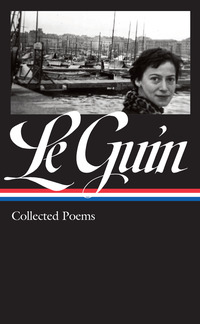
Ursula K. Le Guin’s career began and ended with poetry. This sixth volume in the definitive Library of America edition of her work gathers, for the first time, her collected poems—from her earliest collection, Wild Angels (1974), through her final publication, the collection So Far So Good, which she delivered to her editor just a week before her death in 2018. The themes expressed in the collections gathered here resonate through Le Guin’s entire body of work but find their strongest voice in her poetry: exploration as a metaphor for both human bravery and creativity, the mystery and fragility of nature and the impact of humankind on their environment, the Tao Te Ching, marriage, womanhood, and even cats. Often traditional in form but never in style, Le Guin’s poetry is earthy, surprising, and lyrical. The volume includes a selection of Le Guin’s essays and interviews on poetry and a new introduction by editor Harold Bloom, written before his death in 2019, in which he reflects on his late friendship with Le Guin and on the power of her poems, which he calls “American originals.” With helpful explanatory notes and a chronology of Le Guin’s life and career.

Charles Portis had a deadpan style uniquely his own. Since its publication in 1968, True Grit, his best-known work and one of the great literary Westerns, has elicited superlatives from everyone from Roald Dahl and Larry McMurtry to Donna Tartt and Jonathan Lethem, inviting comparison with The Wizard of Oz and Adventures of Huckleberry Finn. Twice adapted as a film, first in a version starring John Wayne and then by the Coen Brothers, Portis’s novel has given us the unforgettable voice of 14-year-old Mattie Ross, who tells how she set out to avenge her murdered father in a quest that brings her out of her native Arkansas and—along with the seasoned one-eyed U.S. Marshal Rooster Cogburn and a Texas Ranger named LaBoeuf—into the wilds of the Choctaw Nation of the 1870s. Portis’s debut novel Norwood (1966) is, like True Grit, the story of a quest, though here the stakes are far lower: an auto mechanic from Texas embarks on a madcap journey to New York City to recover $70 owed to him from an Army buddy. A novel that according to Roy Blount Jr. “no one should die without having read,” The Dog of the South (1979) is yet a third saga of pursuit, this time all the way to Central America. Ray Midge is on the road looking for the man who has run off with his car (and of somewhat less interest to him, his wife); what he finds is a broken-down bus called “The Dog of the South” and the Louisiana exile Dr. Reo Symes, an outsized con man obsessed with finding a self-help guru who might not even exist. Masters of Atlantis (1985) conjures the fictional cult of Gnomonism and takes an uproarious plunge into the dark heart of conspiratorial thinking and schismatic in-fighting. Gringos (1991), set in Mexico, follows an expatriate ex-Marine in his search to find a UFO hunter gone missing in the Yucatan, amid a supporting cast of archaeologists, drug-addled hippie millenarians, and the son of the “bravest dog in all Mexico.” A generous gathering of the Portis’s nonfiction reveals qualities his skills as a reporter, above all in his coverage of the Civil Rights Movement; his appreciation of Arkansas history and landscape; and his poignancy as a family memoirist.

Nancy Hale was considered one of the preeminent short story artists of her era, a prolific writer whose long association with The New Yorker rivaled that of her contemporary John Cheever. But by the turn of this century few readers knew her name. Library of America launched a major literary revival in 2019 with the release of Where the Light Falls: Selected Stories of Nancy Hale, edited and introduced by Lauren Groff. The collection was hailed as “a great rediscovery” on NPR’s Fresh Air, and in a rapturous review in the Wall Street Journal critic Maureen Corrigan wondered “if Nancy Hale can be forgotten, what hope is there for any of us?” Next spring, Where the Light Falls will be released in a deluxe paperback edition (featuring French flaps) simultaneously with a reissue of Hale’s brilliant novel The Prodigal Women—an uncompromising literary portrait of the interior lives of women that was an explosive hit when published in 1942, the scent of scandal propelling it to the bestseller list. Ranging from Beacon Hill to go-go New York City to stately Virginia, this sweeping coming-of-age story tells the intertwined stories of Leda March, a lonely New England schoolgirl, and Betsy and Maizie Jekyll, daughters of a transplanted Virginia clan who upend Boston society, tracing their friendship from adolescence into adulthood, through bullying, abusive marriages, dangerous liaisons, botched abortions, and feminist awakenings. Fascinating and gripping, The Prodigal Women was a crucial influence on such later works as Mary McCarthy’s The Group and Jacqueline Susann’s Valley of the Dolls, and it remains powerfully resonant today.

